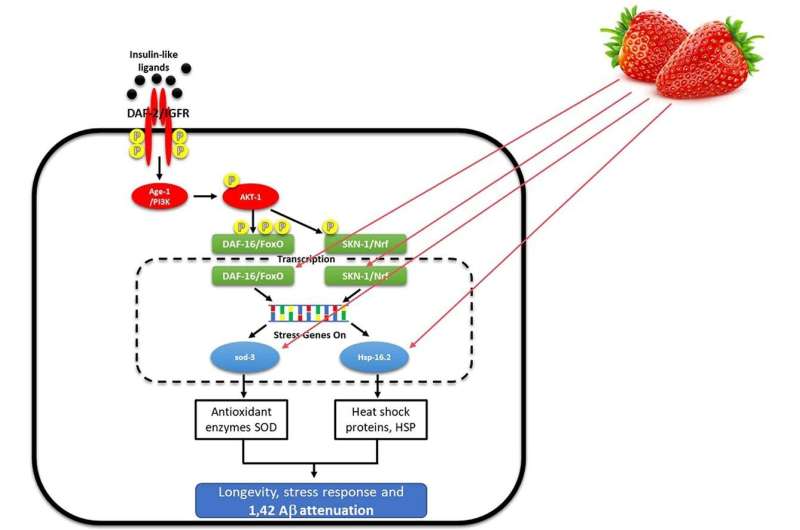Graphical abstract. Credit: Food Chemistry (2021). DOI: 10.1016/j.foodchem.2021.131272
Research focused on the bioactive components of the strawberry variety Romina has shown the ability of this food to delay β-amyloid protein-induced paralysis, reduce amyloid-β aggregation and prevent oxidative stress in the experimental model Caenorhabditis elegans.
In addition, the study verified the richness of the strawberry extract used in the study in terms of its content in phenolic compounds (mainly ellagic acid and pelargonidin-3-glucoside) and minerals (K, Mg, P and Ca).
The Romina strawberry variety stands out for its high adaptability to non-fumigated soils and open field cultivation in climatic conditions from the Adriatic to central-northern Europe and for its resistance to diseases, in addition to being recognized for its nutritional quality and early ripening.
The authors of the study point out that, despite the health benefits of strawberry intake, information on the relationship of this fruit with neurodegenerative diseases, such as Alzheimer's disease, is limited.
More information: María D. Navarro-Hortal et al, Strawberry (Fragaria × ananassa cv. Romina) methanolic extract attenuates Alzheimer's beta amyloid production and oxidative stress by SKN-1/NRF and DAF-16/FOXO mediated mechanisms in C. elegans, Food Chemistry (2021). DOI: 10.1016/j.foodchem.2021.131272
Journal information: Food Chemistry
Provided by Universidad Europea del Atlántico























